Search
Daniel Boyd (1066 KP) created a post
May 18, 2018 (Updated Jun 12, 2018)
Becs (244 KP) rated Marrow Charm in Books
Dec 20, 2019
Dark and magical!!
Trigger Warnings: cannibalism, death, murder, gore, slavery, injury, abduction, absent parent(s), death of a parent(s), manipulation, violence
I was honestly surprised that I ended up loving this novel as much as I did. I had extremely high expectations for it and IT. DELIVERED. When I first picked it up, it took a good minute to actually get into the story. But once it clicked into place, I was devouring Marrow Charm with a thirst. It is heart-wrenching, action packed, enemies to lovers (kinda, a girl can dream), dark and oh so magical!
Marrow Charm follows a morally gray heroine, Azzy Brimvine in a world destroyed by magic. The magic plaguing the lands caused humans to retreat underground. But every so often, magical borne plagues will wipe out masses of human cities. These plagues create aberrations by striking those with magic. When Azzy’s brother is infected, she sets out with her mentor to the Above determined to save him. But, the world in the Above is not all gum drops and unicorns. It is plagued with monsters and humans, wild and cunning. Azzy must brave the perils that litter the Above to reach her brother before the Gate is opened.
Marrow Charm is a bit slow in the begin, but as you continue on it does pick up quite quickly. Once you hit that sweet spot though, your attention is gripped to the point where you don’t even want to put the book down because you are just enthralled in the complex world and characters. I would say the book starts picking up a few chapters in. This could also be a me only thing as I was slumping a bit when I started Marrow Charm, and we all know how slumps can ruin a book!
I was enthralled with not only the characters and their stories, but also the world. Kristin’s writing style is eloquent and breathtaking, and they included a couple of different themes throughout the story! Such as, family and friendship. It was really nice to see both of these take place when the main character had such a life of hardship. And don’t get me started on the complexity of the characters and world!
The characters are written in a way that draws the reader to them but they are also realistic in a way where their actions and thoughts are extremely relatable. This was really interesting to experience when reading, as I was not expecting to enjoy the characters as much as I did. The complexity of the world was also something that surprised me! There was no clear “good-side” or “bad-side” and the descriptions of everything was extremely well-done! You can tell that there is a higher, dark presence that is interwoven into the world but what it is, is unknown. Even at the ending of the novel. This was kind of a bummer, as I wanted to know what that presence was. But it also set it up nicely for book two: Skin Curse.
I can’t gush about Marrow Charm enough! It’s seriously one of my top books of the year and I can’t stop recommending it to everyone. If you are a fan of dark tales with fantasy and magical elements but also a hint of realism, then this is the book for you! But be warned, it does read ‘heavy.’ In the end though, the ‘heavy’ presence makes sense.
You can also find this review on my blog: bookingwayreads.wordpress.com
I was honestly surprised that I ended up loving this novel as much as I did. I had extremely high expectations for it and IT. DELIVERED. When I first picked it up, it took a good minute to actually get into the story. But once it clicked into place, I was devouring Marrow Charm with a thirst. It is heart-wrenching, action packed, enemies to lovers (kinda, a girl can dream), dark and oh so magical!
Marrow Charm follows a morally gray heroine, Azzy Brimvine in a world destroyed by magic. The magic plaguing the lands caused humans to retreat underground. But every so often, magical borne plagues will wipe out masses of human cities. These plagues create aberrations by striking those with magic. When Azzy’s brother is infected, she sets out with her mentor to the Above determined to save him. But, the world in the Above is not all gum drops and unicorns. It is plagued with monsters and humans, wild and cunning. Azzy must brave the perils that litter the Above to reach her brother before the Gate is opened.
Marrow Charm is a bit slow in the begin, but as you continue on it does pick up quite quickly. Once you hit that sweet spot though, your attention is gripped to the point where you don’t even want to put the book down because you are just enthralled in the complex world and characters. I would say the book starts picking up a few chapters in. This could also be a me only thing as I was slumping a bit when I started Marrow Charm, and we all know how slumps can ruin a book!
I was enthralled with not only the characters and their stories, but also the world. Kristin’s writing style is eloquent and breathtaking, and they included a couple of different themes throughout the story! Such as, family and friendship. It was really nice to see both of these take place when the main character had such a life of hardship. And don’t get me started on the complexity of the characters and world!
The characters are written in a way that draws the reader to them but they are also realistic in a way where their actions and thoughts are extremely relatable. This was really interesting to experience when reading, as I was not expecting to enjoy the characters as much as I did. The complexity of the world was also something that surprised me! There was no clear “good-side” or “bad-side” and the descriptions of everything was extremely well-done! You can tell that there is a higher, dark presence that is interwoven into the world but what it is, is unknown. Even at the ending of the novel. This was kind of a bummer, as I wanted to know what that presence was. But it also set it up nicely for book two: Skin Curse.
I can’t gush about Marrow Charm enough! It’s seriously one of my top books of the year and I can’t stop recommending it to everyone. If you are a fan of dark tales with fantasy and magical elements but also a hint of realism, then this is the book for you! But be warned, it does read ‘heavy.’ In the end though, the ‘heavy’ presence makes sense.
You can also find this review on my blog: bookingwayreads.wordpress.com
Sensitivemuse (246 KP) rated The Conqueror's Shadow in Books
Apr 26, 2019
Anti heroes join this great plot
I haven’t read a good fantasy in such a long time! And this one was excellent! It’s fun to see a bunch of misfit anti heroes come together to try and save the world because not only did they leave on bad terms back then in the day, Corvis actually had the galls to come back to ask them for favors (we all had that one friend didn’t we?)
Each of the characters have their distinct quirk and personality. Also they’re not afraid to tell Corvis how it is (and he surprisingly takes it...which makes them a more fun bunch to read) I can’t really say I have a favorite although I admit I was disappointed in Khanda towards the last half of the book. He definitely had the best and more fun personality to read on but he just *had* to do it didn’t he? (you’ll see when you finish the book)
The plot had a steady pace and it was good. I was actually surprised as to who the Serpent really was as you’d think it was obvious. It was a good surprise and the action in the last third of the book was massive with lots of action. Although it gets pretty dark at times and Corvis isn’t a hero per se (more like a terrorizing horrible despot who decimates towns and villages to his liking) it has black comedy elements in it and overall because of this provides a ‘lightness’ to the story. It helps that the cast of characters have witty retorts and comebacks which also provides a few laughs here and there.
The world building and setting is pretty much your standard fantasy setting that is portrayed in most novels of the genre out there. Nevertheless it doesn’t take away from the novel and still provides a good foundation for it.
A plot rich with a variety of characters, good light banter, and some action is what makes up this book in a nutshell. I definitely recommend it as it was an enjoyable read.
Each of the characters have their distinct quirk and personality. Also they’re not afraid to tell Corvis how it is (and he surprisingly takes it...which makes them a more fun bunch to read) I can’t really say I have a favorite although I admit I was disappointed in Khanda towards the last half of the book. He definitely had the best and more fun personality to read on but he just *had* to do it didn’t he? (you’ll see when you finish the book)
The plot had a steady pace and it was good. I was actually surprised as to who the Serpent really was as you’d think it was obvious. It was a good surprise and the action in the last third of the book was massive with lots of action. Although it gets pretty dark at times and Corvis isn’t a hero per se (more like a terrorizing horrible despot who decimates towns and villages to his liking) it has black comedy elements in it and overall because of this provides a ‘lightness’ to the story. It helps that the cast of characters have witty retorts and comebacks which also provides a few laughs here and there.
The world building and setting is pretty much your standard fantasy setting that is portrayed in most novels of the genre out there. Nevertheless it doesn’t take away from the novel and still provides a good foundation for it.
A plot rich with a variety of characters, good light banter, and some action is what makes up this book in a nutshell. I definitely recommend it as it was an enjoyable read.
Hazel (1853 KP) rated Slaying Alven in Books
Mar 29, 2020
Slaying Alven is the latest fantasy novel by the versatile author, Jordan Elizabeth. Set in two different worlds, the story merges contemporary life and Dutch mythology. The Van Nuys family were gradually getting on with their lives six years after the murder of Vader (father). Unfortunately, a reluctant trip to see Aunt Annetie turns their world upside down once more.
There are several key characters in the story. Femmitie is about to finish high school and has just got her first boyfriend, Max. Tanneke, who witnessed Vader's death, has not spoken a word since. Sitske is growing up to be a strong, independent girl. Their mother, Catharina has remarried to a man named Xie with whom they have a son, Harvey. And then there is the Wittewijven ...
According to Dutch mythology, a Wittewijven was a wise woman or herbalist who took care of people's physical and mental ailments. When a Wittewijven died, their spirit remained on earth as "elven" beings, helping or hindering the people they met. The Wittewijven in this story, Wit for short, had turned to dark magic before her death hundreds of years ago. She is responsible for Vader's death and now she wants to destroy the rest of the family.
The story takes place between modern-day America and a world made for the Wittewijven, which can only be accessed by touching the words of a specific book. Over the years, Wit has trapped many people in her world and now the Van Nuys' family are her next targets. The only way Wit can be stopped is to be killed by a descendent, which, as it transpires, the Van Nuys are.
Jordan Elizabeth brings a new subject to the fantasy world in the form of the Wittewijven. Although the mythological character has featured in Dutch literature of the past, the legends are virtually unknown in the wider world.
Although the key characters are in their teens,Slaying Alven is more suited to mature readers due to some of the subjects implied. Overall, it is one of Jordan Elizabeth's best novels.
There are several key characters in the story. Femmitie is about to finish high school and has just got her first boyfriend, Max. Tanneke, who witnessed Vader's death, has not spoken a word since. Sitske is growing up to be a strong, independent girl. Their mother, Catharina has remarried to a man named Xie with whom they have a son, Harvey. And then there is the Wittewijven ...
According to Dutch mythology, a Wittewijven was a wise woman or herbalist who took care of people's physical and mental ailments. When a Wittewijven died, their spirit remained on earth as "elven" beings, helping or hindering the people they met. The Wittewijven in this story, Wit for short, had turned to dark magic before her death hundreds of years ago. She is responsible for Vader's death and now she wants to destroy the rest of the family.
The story takes place between modern-day America and a world made for the Wittewijven, which can only be accessed by touching the words of a specific book. Over the years, Wit has trapped many people in her world and now the Van Nuys' family are her next targets. The only way Wit can be stopped is to be killed by a descendent, which, as it transpires, the Van Nuys are.
Jordan Elizabeth brings a new subject to the fantasy world in the form of the Wittewijven. Although the mythological character has featured in Dutch literature of the past, the legends are virtually unknown in the wider world.
Although the key characters are in their teens,Slaying Alven is more suited to mature readers due to some of the subjects implied. Overall, it is one of Jordan Elizabeth's best novels.
Goddess in the Stacks (553 KP) rated Crimson Bound in Books
Apr 30, 2018
Well, Rosamund Hodge has done it again. I think this one was actually better than Cruel Beauty, and about on par with Bright Smoke, Cold Fire. Crimson Bound is billed as Cruel Beauty #2, but it doesn't actually seem to take place in the same world. They're only connected in that they're both dark fantasy retellings of fairy tales. Crimson Bound is loosely (VERY loosely!) based on Little Red Riding Hood. It's amazing.
In Rachelle's world, The Forest is the dominating theme - it encroaches on villages and towns, sending "woodspawn" to attack people, and Forestborn to turn more humans into bloodbound and ultimately Forestborn. Humans are sheep to The Forest; prey to the Forestborn. Once a Forestborn has marked a human, they have three days to kill someone or they will die. If they kill someone, they become bloodbound - an intermediary step before they become completely Forestborn. Bloodbound have increased strength, resilience, and fighting skills, so the King has extended an offer to Bloodbound - even though they are known murderers, since they had to have killed someone to gain their powers - he will grant them clemency in exchange for their service to the realm. Guard the people from the woodspawn, the mindless monsters the Forest sends to attack people, and he'll let you live.
So Rachelle is a Bloodbound, bound to the King. Unlike most, though, she still believes in some of the old pagan stories about The Forest and the Devourer - the ancient evil driving the Forest's predatory ways. The book is about her quest to stop it from coming through into their world and destroying everything. There are twists and reveals that I cannot mention here, but it is an AMAZING piece of world-building and myth and I LOVED IT.
I also discovered she has several short stories post on her website so I'll be binge-reading those for a while!
This book - and anything by Rosamund Hodge - is pure magic. If you like dark fairy tales, you can't do better than this.
You can find all my reviews at http://goddessinthestacks.wordpress.com
In Rachelle's world, The Forest is the dominating theme - it encroaches on villages and towns, sending "woodspawn" to attack people, and Forestborn to turn more humans into bloodbound and ultimately Forestborn. Humans are sheep to The Forest; prey to the Forestborn. Once a Forestborn has marked a human, they have three days to kill someone or they will die. If they kill someone, they become bloodbound - an intermediary step before they become completely Forestborn. Bloodbound have increased strength, resilience, and fighting skills, so the King has extended an offer to Bloodbound - even though they are known murderers, since they had to have killed someone to gain their powers - he will grant them clemency in exchange for their service to the realm. Guard the people from the woodspawn, the mindless monsters the Forest sends to attack people, and he'll let you live.
So Rachelle is a Bloodbound, bound to the King. Unlike most, though, she still believes in some of the old pagan stories about The Forest and the Devourer - the ancient evil driving the Forest's predatory ways. The book is about her quest to stop it from coming through into their world and destroying everything. There are twists and reveals that I cannot mention here, but it is an AMAZING piece of world-building and myth and I LOVED IT.
I also discovered she has several short stories post on her website so I'll be binge-reading those for a while!
This book - and anything by Rosamund Hodge - is pure magic. If you like dark fairy tales, you can't do better than this.
You can find all my reviews at http://goddessinthestacks.wordpress.com
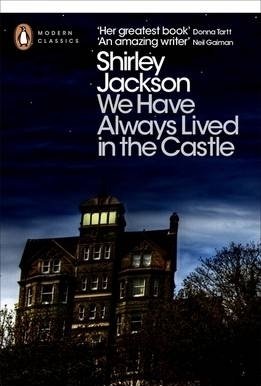
We Have Always Lived in the Castle
Book
Shirley Jackson's masterpiece: the deliciously dark and funny story of Merricat, tomboy teenager,...
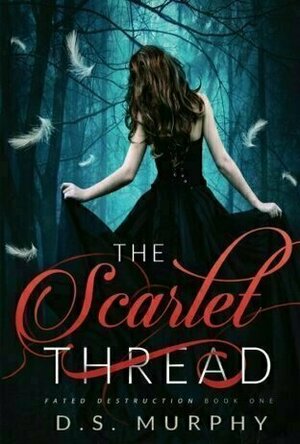
The Scarlet Thread (Fated Destruction, #1)
Book
My name Kaidance Monroe, and sometimes when I touch people, I see how they die. After I saw my...
Leanne Crabtree (480 KP) rated Dirty Angels (Dirty Angels, #1) in Books
Mar 11, 2020
I bought this years ago, 2015 to be exact, and have put it off for a long time when my taste changed from New Adult to Young Adult and Urban Fantasy. I chose it as a challenge read on here so I would finally read it.
So this starts with a prologue. Luisa decides to run away from her abusive drug lord husband in the spur of the moment decision, only to be captured by the enemy. It then moves into Chapter One and we see how she came to be married to Salvador and how she came to be in Javier's captivity. Javier wants her as a hostage so he can negotiate for something Salvador has and the longer they spend around each other, the more they begin to understand each other and feelings emerge.
I'm not really into mafia/cartel books. I find them to be rather violent and prefer sweeter stories with some angst in them. There were some times in this when I just couldn't read all the description and just skipped entire paragraphs, especially the bit with Franco. I also skipped quite a bit towards the end just wanting that final showdown between Javier and Salvador.
I didn't really get their romance. I understand Luisa looking for any light in the blackness that she's living but I still thought Javi was a bit dark, though he did have some nice moments.
I won't be continuing the series.
So this starts with a prologue. Luisa decides to run away from her abusive drug lord husband in the spur of the moment decision, only to be captured by the enemy. It then moves into Chapter One and we see how she came to be married to Salvador and how she came to be in Javier's captivity. Javier wants her as a hostage so he can negotiate for something Salvador has and the longer they spend around each other, the more they begin to understand each other and feelings emerge.
I'm not really into mafia/cartel books. I find them to be rather violent and prefer sweeter stories with some angst in them. There were some times in this when I just couldn't read all the description and just skipped entire paragraphs, especially the bit with Franco. I also skipped quite a bit towards the end just wanting that final showdown between Javier and Salvador.
I didn't really get their romance. I understand Luisa looking for any light in the blackness that she's living but I still thought Javi was a bit dark, though he did have some nice moments.
I won't be continuing the series.
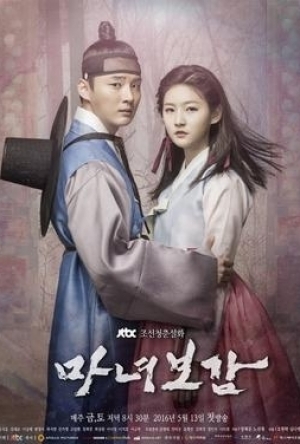
Secret Healer
TV Show
Queen Sim, after learning she is sterile and desperate to appease her mother-in-law asks the shaman,...
korean asian drama historical romance secret healer
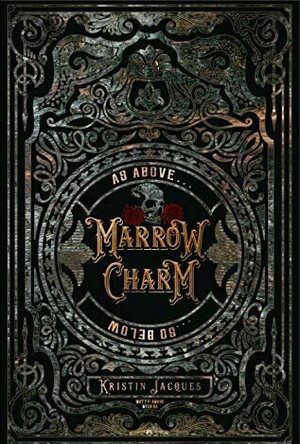
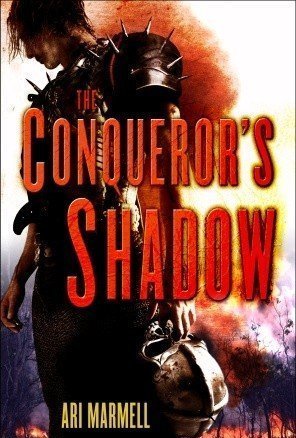
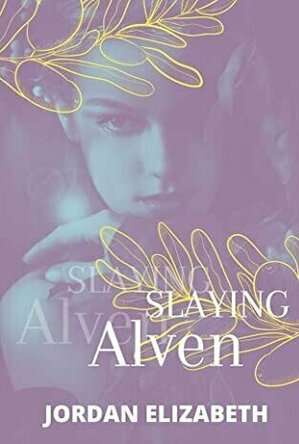

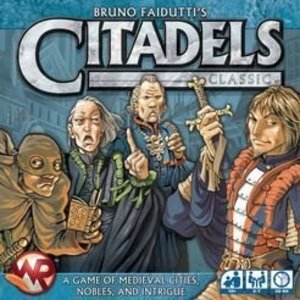
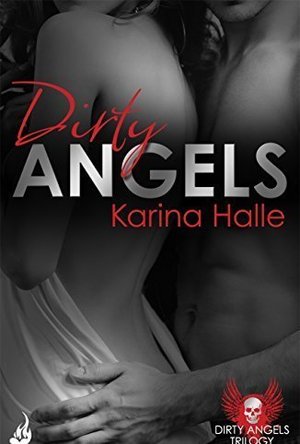
Daniel Boyd (1066 KP) Jun 12, 2018 (Updated Jun 12, 2018)
Daniel Boyd (1066 KP) Jun 12, 2018 (Updated Jun 12, 2018)